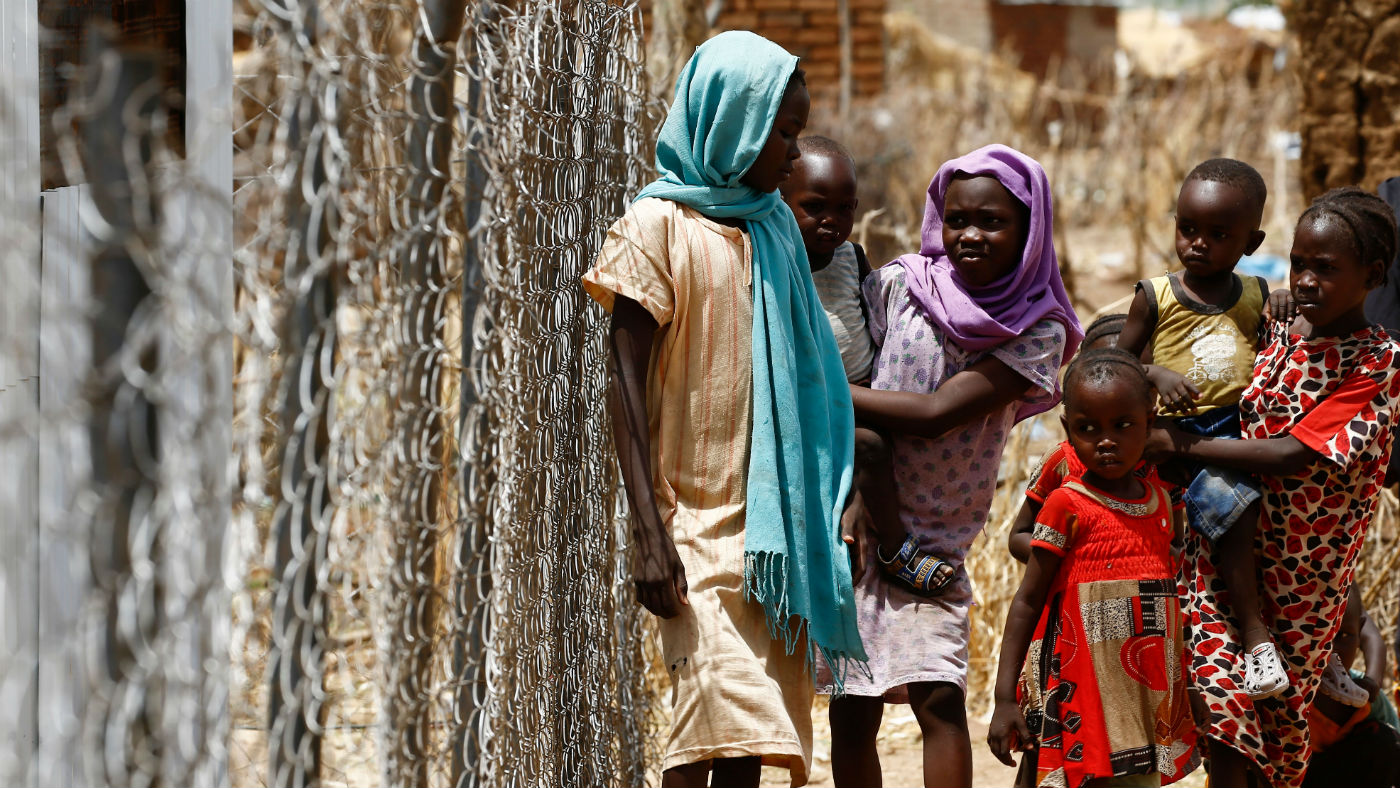Why did UN not act over ‘sex-for-food’ charity scandal?
Unpublished report implicates 40 aid organisations whose workers traded food, oil and access to education for sex

A free daily email with the biggest news stories of the day – and the best features from TheWeek.com
You are now subscribed
Your newsletter sign-up was successful
Charity workers from international aid agencies have been implicated in a decade-long sex-for-food scandal, according to a UN report which was leaked to The Times but never formally published.
The 84-page document produced in 2001 for the United Nations High Commissioner for Refugees (UNHCR), identified more than 40 aid organisations “whose workers are alleged to be in sexually exploitative relationships with refugee children” in camps in west Africa in the 1990s.
Refugee families told UNHCR researchers of sex regularly being traded for essentials such as food, oil, access to education and even plastic sheeting for shelters.
The Week
Escape your echo chamber. Get the facts behind the news, plus analysis from multiple perspectives.

Sign up for The Week's Free Newsletters
From our morning news briefing to a weekly Good News Newsletter, get the best of The Week delivered directly to your inbox.
From our morning news briefing to a weekly Good News Newsletter, get the best of The Week delivered directly to your inbox.
According to The Sun, charity workers in a camp in Guinea would tell women “a kilo of flour for sex”.
The list of organisations implicated includes the World Food Programme, Save the Children, Medecins Sans Frontieres, the International Rescue Committee, and the International Federation of Red Cross Societies.
Claims against 67 people were passed to senior UNHCR officials “in confidential lists”, however, The Times understands that fewer than ten were dismissed and none were prosecuted.
The latest revalations come just months are the international aid sector was rocked by allegations of sexual misconduct by Oxfam aid workers in the aftermath of the 2011 Haiti earthquake. Oxfam’s chief executive, Mark Goldring, announced he would be stepping down last week in the wake of the scandal.
A free daily email with the biggest news stories of the day – and the best features from TheWeek.com
The Commons international development committee, which launched an inquiry into the sexual exploitation in the aid sector following the Oxfam allegations, has reportedly also been handed a copy of the UN report, which one member said was “very important to our inquiry because it shows the aid sector has had problems for many years but has failed to sort itself out and now is the time for renewal and reform”.
-
 ‘Poor time management isn’t just an inconvenience’
‘Poor time management isn’t just an inconvenience’Instant Opinion Opinion, comment and editorials of the day
-
 Bad Bunny’s Super Bowl: A win for unity
Bad Bunny’s Super Bowl: A win for unityFeature The global superstar's halftime show was a celebration for everyone to enjoy
-
 Book reviews: ‘Bonfire of the Murdochs’ and ‘The Typewriter and the Guillotine’
Book reviews: ‘Bonfire of the Murdochs’ and ‘The Typewriter and the Guillotine’Feature New insights into the Murdoch family’s turmoil and a renowned journalist’s time in pre-World War II Paris
-
 Epstein files topple law CEO, roil UK government
Epstein files topple law CEO, roil UK governmentSpeed Read Peter Mandelson, Britain’s former ambassador to the US, is caught up in the scandal
-
 Iran and US prepare to meet after skirmishes
Iran and US prepare to meet after skirmishesSpeed Read The incident comes amid heightened tensions in the Middle East
-
 Israel retrieves final hostage’s body from Gaza
Israel retrieves final hostage’s body from GazaSpeed Read The 24-year-old police officer was killed during the initial Hamas attack
-
 China’s Xi targets top general in growing purge
China’s Xi targets top general in growing purgeSpeed Read Zhang Youxia is being investigated over ‘grave violations’ of the law
-
 Panama and Canada are negotiating over a crucial copper mine
Panama and Canada are negotiating over a crucial copper mineIn the Spotlight Panama is set to make a final decision on the mine this summer
-
 Why Greenland’s natural resources are nearly impossible to mine
Why Greenland’s natural resources are nearly impossible to mineThe Explainer The country’s natural landscape makes the task extremely difficult
-
 Iran cuts internet as protests escalate
Iran cuts internet as protests escalateSpeed Reada Government buildings across the country have been set on fire
-
 US nabs ‘shadow’ tanker claimed by Russia
US nabs ‘shadow’ tanker claimed by RussiaSpeed Read The ship was one of two vessels seized by the US military